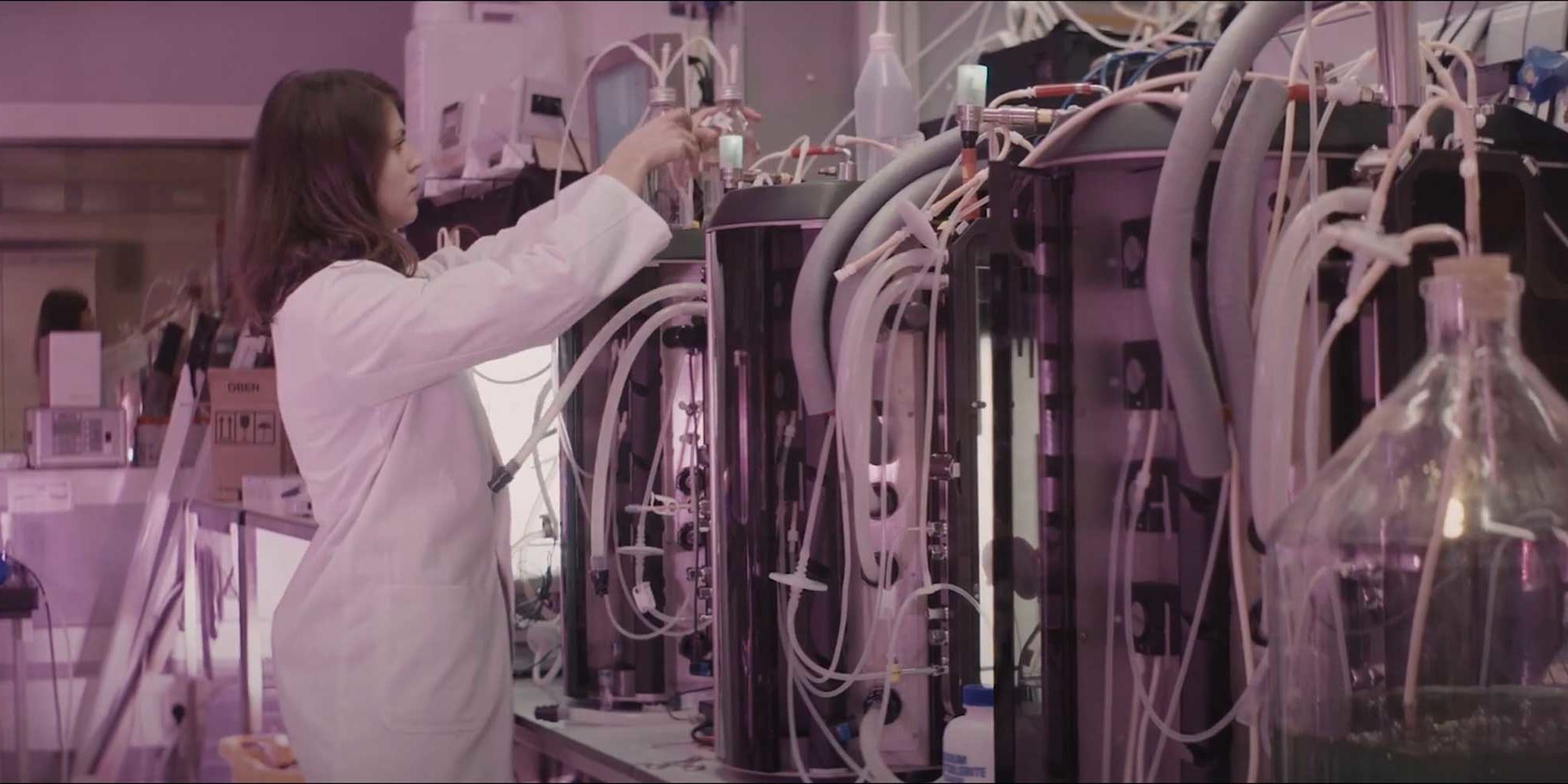Lactic acid is a raw material from which bio-based plastics (PLA), care products and biofuels, among other things, can be made. Photanol’s latest step forms an important milestone in the development of the northern biobased industry and the transition to a circular economy.
The demo plant has a capacity of 10 tonnes per year and forms an essential intermediate step in scaling up to a commercial plant. In 2023, Photanol expects to be able to produce 30 kilotonnes per year, and in 2024 a full commercial plant will be operational, is expected.
The beauty of Photanol’s technology is that under influence of sunlight, the bacteria can convert CO2 directly into a product. No other food sources are needed. No intermediate steps, such as growing crops, harvesting and treating, are needed either. Photanol’s technology is therefore a commercially viable solution to the CO2 problem, and contributes to the EU’s objectives: 25% of chemicals and materials should be made from renewable resources by 2030.
More information can be found on Photanol’s website.
Image: Photanol/YouTube



